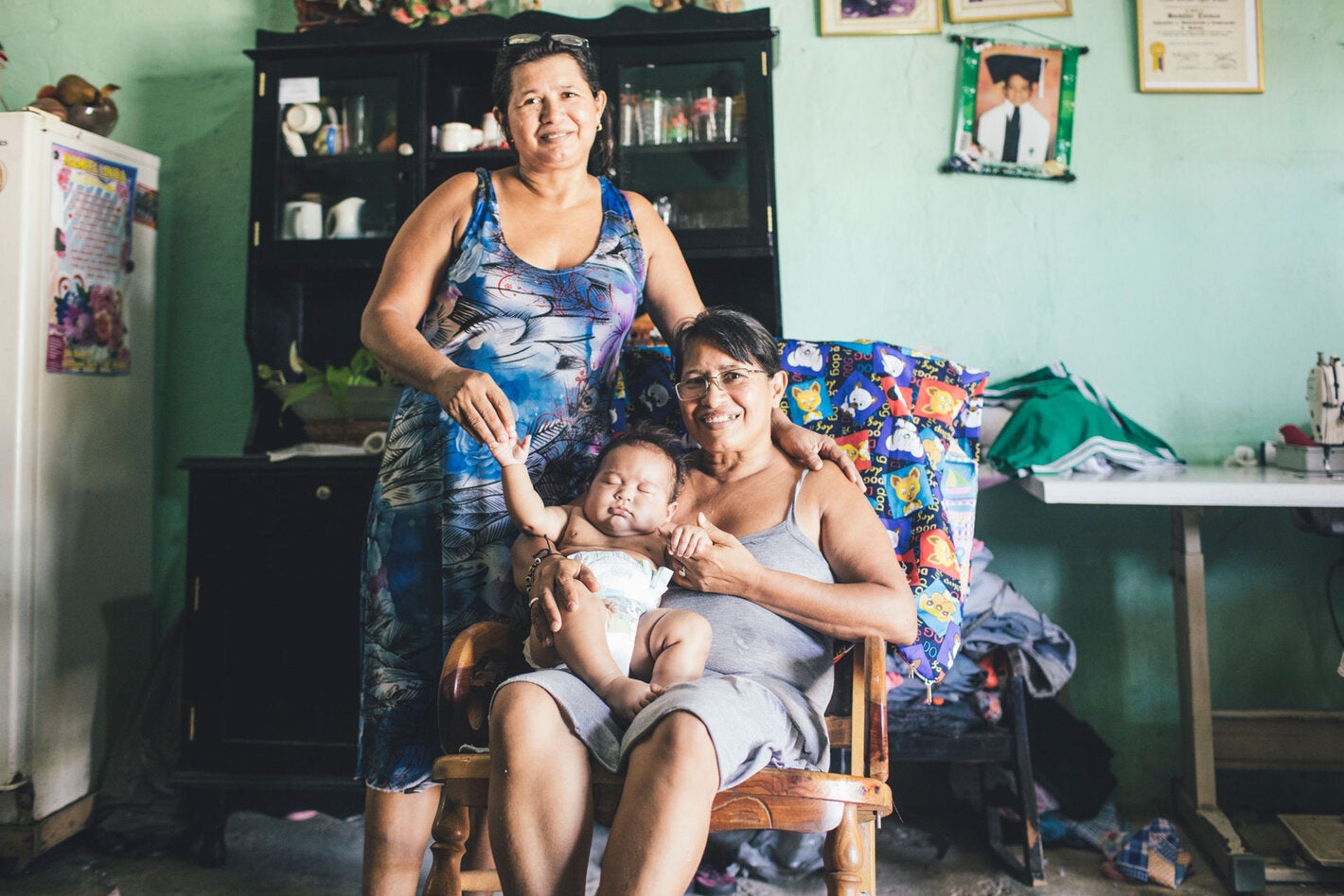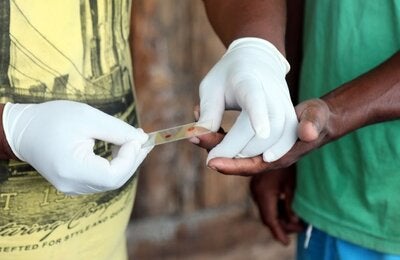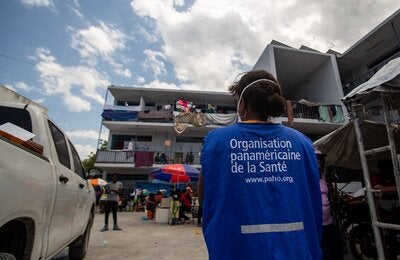
Washington, DC, January 11 2023 (PAHO). The PAHO Technical Advisory Group (TAG) on Immunization held its XI Ad hoc virtual meeting on 21 November 2023 to consider the evidence on the safety and efficacy of the tetravalent live attenuated dengue vaccine developed by Takeda (TAK-003), as well as the safety and efficacy of the maternal RSVPreF vaccine (Abrysvo) for the prevention of RSV-associated disease in infants, and provided recommendations for their use in the Region of the Americas. The TAG also issued a statement in support of ongoing vaccination against COVID-19 in the Americas, in line with the latest recommendations from the WHO’s Strategic Advisory Group of Experts (SAGE) on Immunization.
Below the highlights from the XI Ad hoc meeting. The full report will be published on PAHO website, and only the wording of the full report should be considered final:
Session 1: TAK-003 vaccine against the Dengue virus
- Between January and September 2023, the Americas reported more than 3.5 million suspected cases of dengue, of which 5,165 were classified as severe, and 1,665 deaths. This is the year with the highest number of cases recorded in our Region.
- Currently, all four dengue serotypes (DENV 1, 2, 3 and 4) are circulating in the Region of the Americas. In several countries, more than one serotype is circulating simultaneously. Nearly 500 million people in our Region are at risk of contracting dengue and other arboviruses transmitted by Aedes aegypti.
- The tetravalent live attenuated dengue vaccine developed by Takeda (TAK-003) demonstrated efficacy in endemic countries to prevent symptomatic dengue disease (i.e., virologically confirmed dengue, or VCD) and hospitalization in children aged 4 to 16 years who tested as seropositive (i.e., with dengue infection prior to vaccination) against the four serotypes of the virus. Of note, vaccine efficacy was substantially lower in children vaccinated at 4-5 years of age compared to those who received the vaccine between 6 and 16 years of age.
- Efficacy against VCD and hospitalization was demonstrated against serotypes 1 and 2 in seronegative children (i.e. without dengue infection prior to vaccination). The vaccine did not demonstrate adequate efficacy in seronegative children against symptomatic dengue disease, hospitalization, dengue hemorrhagic fever or severe dengue when infection was due to serotypes 3 and 4. The risk of enhanced dengue disease due to serotypes 3 and 4 associated with the vaccine in seronegative children cannot be ruled out.
- In its meeting on 25-29 September 2023, the WHO’s Strategic Advisory Group of Experts (SAGE) on Immunization recommended that Member States consider the use of the TAK-003 vaccine for children aged 6 to 16 years who live in settings with high dengue disease burden and high transmission intensity. However, significant gaps regarding the safety and effectiveness of this vaccine against dengue virus type 3 and type 4 in baseline seronegative persons remain.
- PAHO accepts the TAG’s endorsement of the SAGE’s recommendation on the introduction of the TAK-003 vaccine in these settings, provided that careful steps are taken to ensure evaluation and follow up of the safety and effectiveness of the vaccine, and that the communities and healthcare providers involved are fully informed of the potential benefits and risks and support the use of the vaccine.
- PAHO recommends that any introduction of the TAK-003 vaccine in a country should be considered a pilot and be accompanied by a robust Phase 4 post-marketing study.
- PAHO accepts the TAG’s recommendation that Member States should not implement country-wide immunization programs with the TAK-003 vaccine at this time. Also, Member States that do not have a vaccination platform for adolescents should not consider the introduction of the TAK-003 vaccine at this time.
- PAHO accepts the TAG’s recommendation that Takeda should undertake a Phase 4 vaccine trial to address information gaps.
Session 2: Maternal vaccine against the Respiratory Syncytial Virus (RSV)
- Globally, respiratory syncytial virus (RSV) is the most common cause of pneumonia and bronchiolitis in infants.It is also the leading cause of hospitalizations and deaths in the first six months of life. In the Americas, most RSV-associated hospitalizations are reported among children younger than 5 years, especially in infants younger than 6 months.
- At this time, the maternal RSVPreF vaccine (Abrysvo) for the prevention of RSV-associated disease in infants produced by Pfizer is the only vaccine on the market with approval from the US Food and Drug Administration (FDA) and the European Medicine Agency (EMA) for use in pregnant women.
- In clinical trials, the maternal vaccine has shown to be effective at preventing severe RSV-associated disease in infants from birth through 6 months of age. Also, the vaccine demonstrated a favorable safety profile for both mother and infant. In the clinical trial, an excess of preterm births was observed in the vaccinated group versus placebo, although the differences were not statistically significant.
- To date, there are considerable information gaps related to the effectiveness, impact and cost-effectiveness of this vaccine.
- If any country or territory of Latin America or the Caribbean elects to introduce maternal RSVPreF vaccine, PAHO recommends its use in pregnant women at 32-36 weeks of gestation to prevent RSV disease in infants while minimizing the risk of preterm birth.
Session 3: Statement from the TAG on COVID-19 Vaccination Efforts in the Americas
- Since March 2020, the Americas have reported 193 million confirmed cases of COVID-19 and 2.97 million deaths – making it the region with the highest case fatality rate in the world.
- To date, the countries and territories of the Americas administered more than 2.1 billion doses of vaccine against COVID-19. Despite this effort, only 71.3% of the population in Latin America and the Caribbean have been fully vaccinated against this disease, with differences in coverage across countries and risk groups.
- After four years of pandemic, most people in the world have some immunity against the SARS-CoV-2 virus through infection, vaccination, or both. Meanwhile, significant reductions in severe disease and death related to SARS-CoV-2 have been observed across all age groups.
- At this stage of the pandemic, the benefits of a two-dose primary vaccination series have become limited. Countries can reduce their morbidity and mortality rates by ensuring that all persons receive at least one dose of COVID-19 vaccine.
- PAHO and the TAG reiterated the recommendations of the WHO’s Strategic Advisory Group of Experts (SAGE) on immunization regarding the need to strengthen and maintain vaccination activities against COVID-19 – especially for high-risk priority groups (i.e., older adults, pregnant women, persons with comorbidities, immunocompromised persons, health workers).



